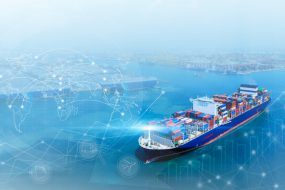

Retail logistics is a key part of business operations in today’s fast-paced world. It is where supply chain management, technology, and customer needs meet. As cities grow and e-commerce changes quickly, businesses must adapt and find new operating methods. Effectiveretail logistics solutions help manage this complexity, ensuring smooth production and delivery processes.
Understanding retail logistics
Retail logistics is the backbone of supply chain management in the retail sector. It encompasses all activities related to the planning, implementing, and controlling the efficient flow and storage of goods. This process extends from the point of origin to the point of consumption, ensuring products are available to meet consumer demand promptly and efficiently.
Key components of retail logistics
- Inventory management: Effective inventory management is critical for retail logistics solutions. It requires precise forecasting, real-time tracking, and strategic replenishment to avoid overstocking or stockouts.
- Warehousing and distribution: The location and management of warehouses play a significant role in retail logistics. Efficientwarehousingstrategies, including automated systems and strategic location selection, can significantly reduce transit times and costs.
- Transportation:Multimodal transportation, utilising various modes like road, rail, air, and sea, optimises cost and time efficiencies. The integration of technology in transportation logistics enhances route planning and delivery precision.
- Last-mile delivery: The final step in theretail logisticschain, last-mile delivery, is critical in shaping the customer experience. Innovations inlast-mile solutions, such as drone deliveries and autonomous vehicles, are revolutionising retail logistics.
Related reading: Boosting online shopping logistics: Strategies for fast and reliable delivery
The role of technology in retail logistics
Technology is essential for modern retail logistics. It affects every part of the supply chain.
Innovations driving retail logistics
- Blockchain technology: Blockchain offers transparency, security, and traceability, crucial for managing complex supply chains. It aids in fraud prevention and ensures the authenticity of products, enhancing trust across the logistics network.
- Artificial intelligence and machine learning: AI and ML algorithms are instrumental in forecasting demand, optimising routes, and enhancing decision-making processes. These technologies provide predictive insights that are invaluable in dynamic retail environments.
- Internet of Things (IoT): IoT devices enable real-time tracking of shipments and inventory, providing critical data that enhances visibility and responsiveness in logistics operations.
- Automation and robotics: Automating warehousing tasks and using robotics in sorting and packaging streamline operations, reduce labour costs, and minimise human error.
Addressing challenges in retail logistics
Retail logistics faces many challenges that need smart solutions, even with recent improvements.
Overcoming urbanisation and e-commerce growth
The rapid growth of e-commerce and urbanisation presents logistical challenges, such as traffic congestion, delivery delays, and increased demand for faster shipping. Retailers must innovate to maintain efficiency and customer satisfaction.
- Urban warehousing: Placing micro-warehouses closer to urban centres can alleviate some of the pressures of last-mile delivery, reducing transportation times and costs.
- Collaborative logistics: Sharing logistics resources among retailers can lead to cost savings and increased efficiency, particularly in congested urban areas.
Enhancing supply chain resilience
Supply chain disruptions can significantly impact retail logistics, whether due to geopolitical tensions or natural disasters.
- Diversified supply chains: Building a resilient supply chain involves diversifying suppliers and transportation modes to mitigate risks associated with disruptions.
- Strategic partnerships: Collaborating with logistics partners who offer flexible and scalable solutions can enhance supply chain resilience.
Future trends in retail logistics
As retail logistics continues to evolve, several emerging trends promise to reshape the landscape.
Embracing the circular economy
The shift towards a circular economy, where waste is minimised and resources are reused, is gaining traction. Retailers are exploring reverse logistics solutions to recover and recycle products, contributing to sustainability and cost savings.


Leveraging big data analytics
The proliferation of data presents opportunities for deeper insights into consumer behaviour and logistics performance. Big data analytics can drive more informed decision-making and strategic planning.
Sustainable logistics practices
Sustainability is becoming a priority in logistics, with retailers adopting eco-friendly practices such as carbon-neutral shipping and green packaging.
Related reading: The complete guide to circular economy practices in fashion logistics
Key takeaway
Retail logistics is perpetually evolving, driven by technological advancements and shifting consumer expectations. By embracing innovative retail logistics solutions, businesses can enhance operational efficiency, reduce costs, and improve customer satisfaction. As supply chain management becomes increasingly sophisticated, adapting and innovating is crucial for success in modern retail.
The interplay between technology, supply chain management, and strategic logistics solutions forms the foundation for efficient retail operations. By leveraging these elements, retailers can navigate the complexities of the current landscape, ensuring sustainable growth and competitive advantage in an ever-changing market.
Boost your business efficiency. Contact us for scalable logistics support.




